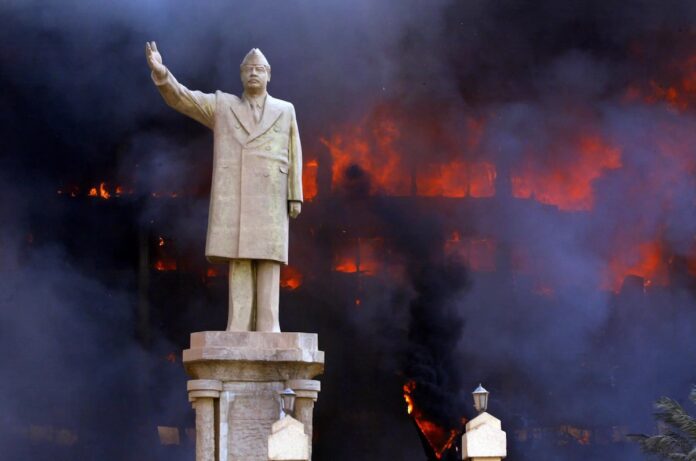Yasser Ghalib Ahmed – researcher
The lack of legitimacy of society in its decisions, interventions, and evaluation of itself according to general human formulations, whether (cultural, social, political, or economic) in a particular region, will mean to the total population in this land that it follows another legitimacy, and this other legitimacy is the lack of knowledge of the meanings of solidarity, interdependence and collective participation in making certain decisions, as the absence of these meanings in their existence as meaning and application will give legitimacy and justification to the authority, and there will be general deviations, thus, the legitimacy of the people ill bee destroyed and reversals in culture will take place in the negative direction by monopolizing power, secondly, the dictatorship of power leads to the extent that voluntary generation is born into slavery, this is what developing societies suffer in general, Iraqi society in particular gives legitimacy to the existing authority from a subconscious or from soft religious and emotional awareness, and this awareness lacks solidarity and social participation, and the dominance of sectarianism in society, which makes thinking and re-evaluation in favor of a society in a very narrow scope.
There are two concepts in the philosophy of the history of civilization and these concepts go back to the historian and philosopher of history (Arnold Tonby) whose meaning assumes that the history of each people passes according to these two concepts in the decline and renaissance of these peoples, which are the concepts of antiquity and futurism, The scientific purpose of this term, which was applied by (Tonby), was to find out the reasons for the emergence of civilization, its decline, and how peoples think after civilization collapses.
How can you examine these two concepts in the Iraqi context?
When the Iraqi royal government fell in the coup of July 14, 1958, at the hands of the Republicans, a kind of public emotional inflame appeared, applauding the leader Abdul Karim Qassem, and at the same time there were also currents against him, and other conservative currents that want to restore the royal era, and when Abdul Karim Qassem was killed in 1963 and then Abdul Salam Aref took power, and the emergence of the bad reputation of the National Guard, the old generation in the hearts of the masses in sadness and crying over the royal era, and the era of Abdul Karim Qassem, as well as up to the control of the Baathists in 1968 Along these lines, whenever a corrupt state collapses and a corrupt state comes after it, there is sadness and crying for the past life in that state, and this is observed when observing research as a behavior among the elderly who have lived through the volatility of the eras. But what we have experienced and read about these eras is a qualitative and quantitative change, or is the arrival of the term social antiquity to its final stage
When Saddam Hussein took over Iraq in 1979, a different situation began in Iraqi society, from ruling authoritarian parties to a dictatorial person with all the characteristics of tyrants, and the destructive criminal psyche of society, as he molds society into an imposed template that consistent with the leader’s thesis and the psychological conflicts that make him impose this authoritarian model on others.
A year after taking power, the Iran-Iraq war broke out, and the war lasted eight years of killing and destruction, killing more than a million soldiers from both sides, then after this long war, Saddam entered the Kuwait war, and what’s done is done, and people began to grieve, and cry for the former president of Saddam, which is Ahmed Hassan Al-Bakr, and also what’s done is done in the nineties of hunger, siege, and death of more than five hundred thousand Iraqi children, all as a result of the mistakes of the failed political leadership, and holding on to power at the expense of Society.











